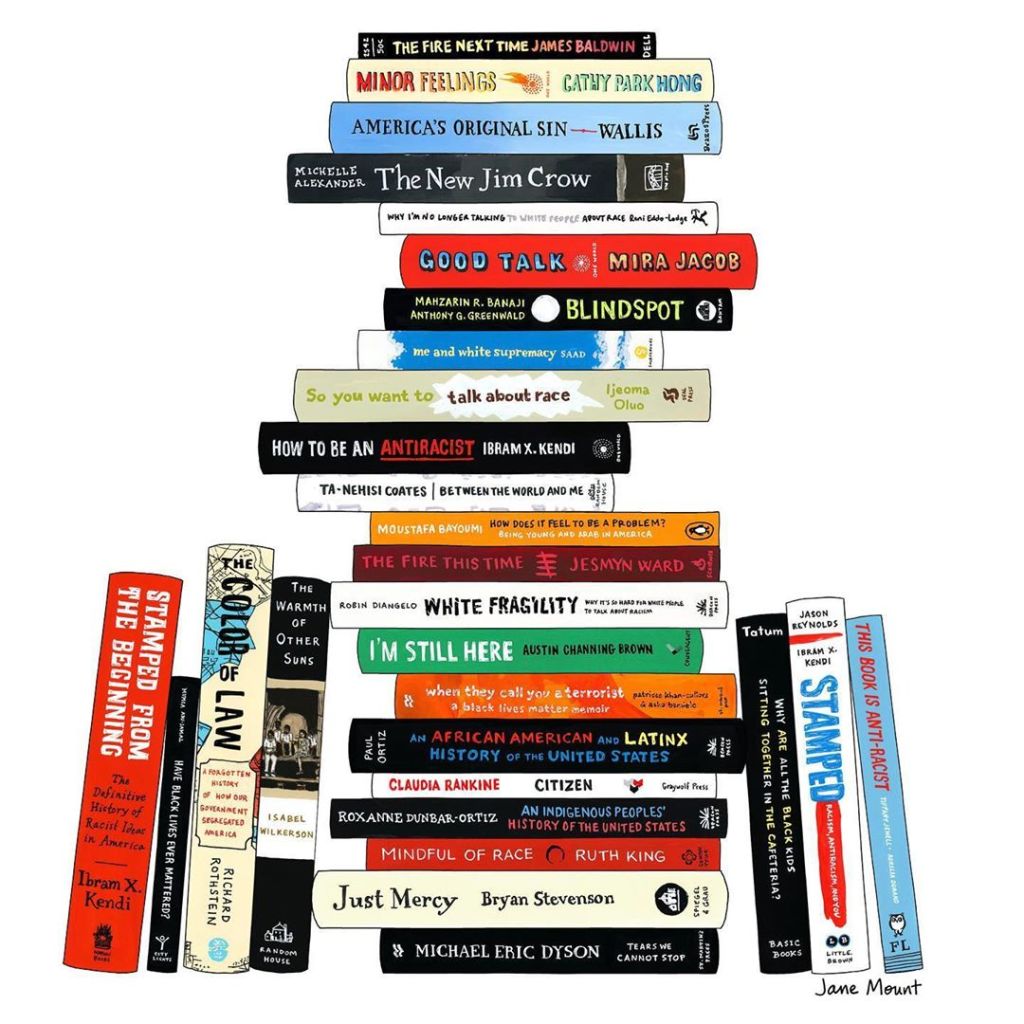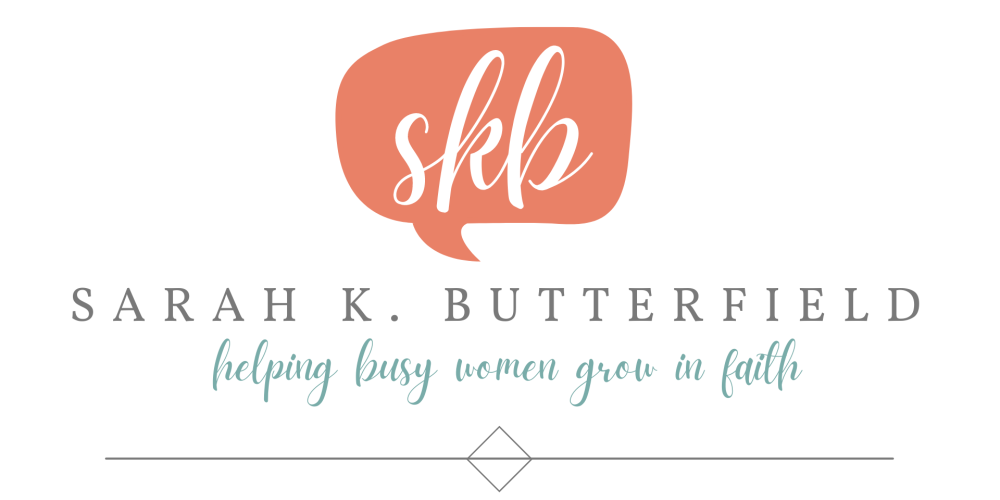The first time I confronted my own racism was at the dollar store. I was in the checkout line, emptying the contents of my basket on the conveyor belt. Standing in front of me was a black mom, a little younger than me, holding her toddler. In the checkout line right next to mine, a white mom with a baby on her hip was paying for her items.
Looking towards the white mom, I thought: “I wonder if I have any business cards for our church’s mom’s group in my purse? That mom might want to join our group!”
At the same time, the black toddler right in front of me started crying and I realized with alarm that it hadn’t crossed my mind to invite the black mom to join our group.
Why didn’t I have the same friendly impulse towards the black mom? What was wrong with me? Somewhere along the line, I had learned that similarity meant safety.
I was ashamed of myself; confronting my own bias was humbling. I wanted to do better, to be better than that. But how?

Listen
One of the first steps we can take in confronting racism is to listen to BIPOC (Black, Indigenous, People of Color) who have gone out of their way to educate white people. Read the books and articles already written instead of reaching out to them individually and burdening them with our anti-racist education. Google is at our disposal, so let’s use it.

In addition to the list of fantastic resources pictured above, I’d love to add the following titles written by Christian authors to your reading list.
Be the Bridge by Latasha Morrison
A Sojourner’s Truth by Natasha Sistrunk Robinson
Roadmap to Reconciliation 2.0 by Brenda Salter McNeil
Shalom Sistas by Osheta Moore
The Very Good Gospel by Lisa Sharon Harper
One by Diedra Riggs
If you’d rather learn by watching, check out this free video series and discussion guide.
Be sure to watch this quick video, created two years ago but sadly still relevant.
I highly recommend this short video from Ivirlei Brookes titled What White People Can do
The movie Just Mercy, based on the incredible book by Bryan Stevenson, is available to stream for free this month.
I highly recommend Brownicity, a membership site run by Christian writer Lucretia Berry, dedicated to “advocacy, education, and support for racial healing and anti-racism.” Her next live virtual course starts June 16th.
Reflect
As you read and watch, listen with an open mind instead of with a defensive posture. And as you listen, reflect: how have you benefited from systemic racism? And What can you do to dismantle it? Because if there’s going to be real change in this country, it’s going to be from the hands of those who hold the power, who benefit from the system of racial injustice.
“Our nation is not racially segregated the way it is by happenstance. It is because of racist federal policies and history of racial terrorism in our nation that has breathed the racial segregation that many of us are born into, and we inhabit.”
Dominique Dubois Gilliard
We can’t let our activism end with a hashtag or a black square.
We can’t read a book and call it good.
We can’t follow BIPOC accounts on Twitter and Instagram and think our work is done.
This system is not a “broken” system, it was designed this way on purpose, built over centuries. And we’re kidding ourselves if we think it can be dismantled in a matter of weeks or months.
Do you know what I want?
I want justice—oceans of it.
I want fairness—rivers of it.
That’s what I want. That’s all I want.
-Amos 5:24 (MSG)
Commit
If we want what Amos wants, if we want justice and fairness, we need to be true allies to our Black brothers and sisters and we need to commit to being here for the long haul: listening, learning, speaking out, and advocating.
If we want justice, we need to be true allies to our Black brothers and sisters and we need to commit to being here for the long haul: listening, learning, speaking out, and advocating.
Tweet
And it starts with digging deep into ourselves as we examine our own racial biases, and recognizing our own white privilege.
I am not a leading voice in this conversation, I am a fellow learner. Before the national protests over the killing of George Floyd, I had only dipped a toe or two into anti-racist literature and education. But I feel an increased urgency to learn and to listen, to be an informed and lasting ally, to amplify the voices of BIPOC and to use my white privilege to advocate for lasting change.
“Our only chance at dismantling racial injustice is being more curious about its origins than we are worried about our comfort. It’s not a comfortable conversation for any of us. It is risky and messy. It is haunting work to recall the sins of our past. But is this not the work we have been called to anyway? Is this not the work of the Holy Spirit to illuminate truth and inspire transformation?”
Austin Channing Brown, “I’m Still Here”
If you have other resources that would be helpful on this journey, please share them in the comments below!


I love this Sarah. We are all working on dismantling stereotypes. I’ve been asking God to reveal my own biases in the midst of all of this.
LikeLiked by 2 people
‘Advocate for lasting change’ I really like that statement – to come alongside those who are fighting for equality and justice. Thank you
LikeLiked by 3 people
“We can’t let our activism end with a hashtag or a black square.“ Thanks for a meaningful post with credible steps to take for lasting change. I’ll be checking into some of those books!
LikeLiked by 3 people
Thank you! I just finished reading “I’m Still Here” by Austin Channing Brown and I would highly recommend it!
LikeLiked by 1 person
Thanks for this! Continue to really see black people We all have so much in common, more than what divides us. Great post.
LikeLiked by 1 person
Really good thoughts and actionable steps, Sarah. Thank you!
LikeLiked by 1 person
Thank you for sharing this and being so open and honest. I’m currently reading I’m Still Here by Austin Channing Brown and look forward to adding some of the other books you shared to my reading list.
LikeLiked by 1 person
What a fantastic list of resources and meditative reflection! I’ve added several of those books to my Goodreads list for future reading.
I’d also encourage people to add Black-authored fiction to their lists. It’s really easy for us to pigeonhole learning into non-fiction, but humans are wired for storytelling, conveying important truth and perspective through imagination. Levar Burton Reads is an excellent podcast for anyone wanting to explore short fiction by POC authors. It really broadened my horizons.
LikeLiked by 2 people
That is such a great point! Thank you for sharing that resource with us! My to-be-read pile keeps growing and growing, haha!!
LikeLiked by 1 person